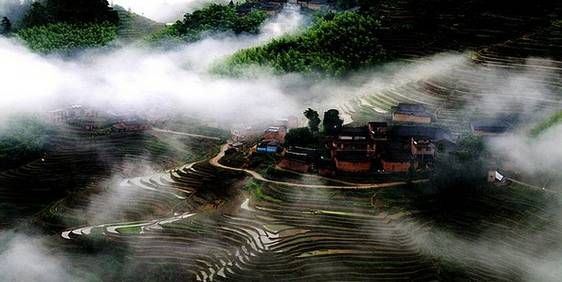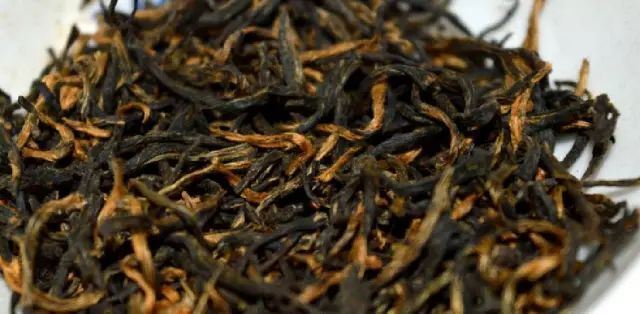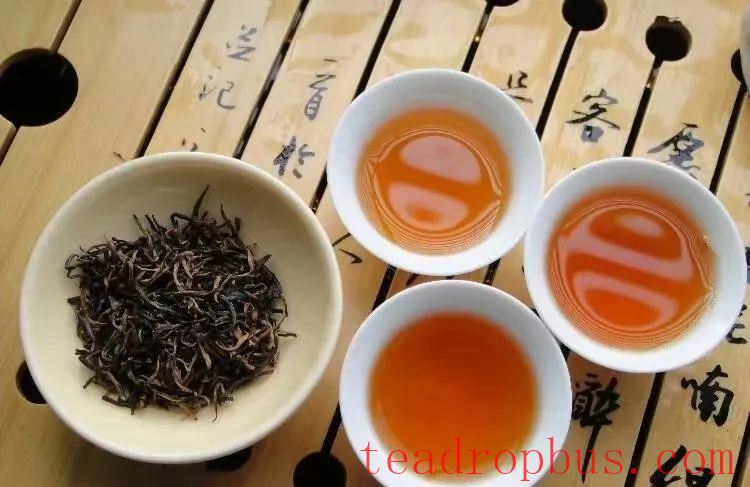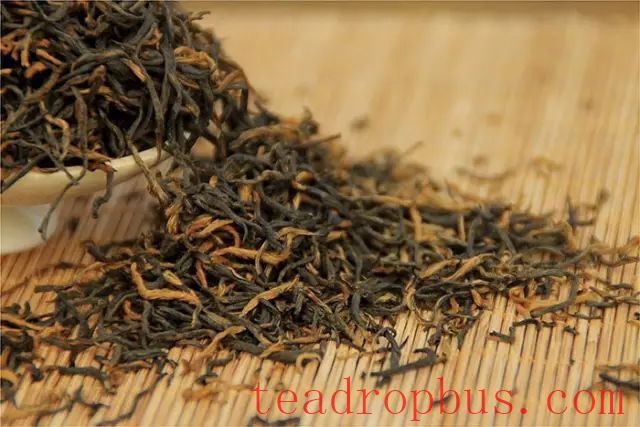Tanyang Gongfu originates from Tanyang Village at the foot of White Cloud Mountain in Fu'an City. It is said that during the reigns of Emperor Xianfeng and Tongzhi of the Qing Dynasty (1851-1874), a villager named Hu Fusi (also known as Hu Jin Si) successfully produced black Tea, which was then transported via Guangzhou for export to Western Europe.

Origin
Tanyang Gongfu is one of the three major gongfu black teas in Fujian Province, originating from Fu'an, known as the “Hometown of Chinese Tea.”
It is said that during the reigns of Emperor Xianfeng and Tongzhi (1851-1874), villagers in Tanyang, Fu'an City, successfully experimented with its production. The tea has a history of more than 100 years. Its production area is extensive, centered around Tanyang Village in Fu'an City and extending to areas in Zherong, Shouning, Zhouning, Xiaopu, and northern Pingnan.

Characteristics
The tea is tightly rolled, uniform, and has golden tips. It has a lustrous, dark black color, produces a bright, clear red liquor, and offers a fresh, sweet, and harmonious taste. Its aroma is rich and fragrant with notes of osmanthus. Made from the leaves of the national superior tea variety, Tanyang Cai tea, using traditional methods, it is highly favored.
The Legend of Tanyang Gongfu tea
Tanyang Gongfu carries a legendary connotation, and its birth is shrouded in legend. There are two known versions: the Yongzheng version and the Xianfeng version.

Yongzheng Version: According to legend, during the reign of Emperor Yongzheng, there was a young man named Hu Fusi (Hu Guiyu, fourth generation of the Hu family in Tanyang, born in 1722 during the 61st year of the Kangxi reign; he lived until 1791) from the Hu family in Tanyang. He was ordered by his father and elder brothers to travel by water to Guangdong on business. On the way, near the waters off Guangzhou, his boat capsized due to strong winds, and he fell into the water. Fortunately, he was rescued by a passing ship, whose owner was the wife and daughter of a comprador for an English merchant house. The comprador, seeing Hu Fusi's intelligence and good looks, was very impressed and decided to help him. Learning that this young man came from a tea-producing region, the comprador revealed a business opportunity: foreigners liked a particular type of black tea made by a minority group, but because its production was extremely limited, even large sums of money could not secure a sufficient supply. The comprador shared the basic method for making this black tea with Hu Fusi and instructed him to return home and make it according to these instructions. If successful, he could deliver the finished product to Guangzhou, where the merchant house would handle its overseas sales. Returning to Tanyang, Hu Fusi tried making this black tea following the method, and thus, the initial batch of Tanyang Gongfu black tea was created. This method gradually spread, and the villagers began to imitate it.

Xianfeng Version: It is said that in the first year of Emperor Xianfeng's reign, a tea merchant surnamed Hu from Tanyang went out to do business. On the way, at an inn, he met a tea guest from Jian'ning who had dysentery. The man was vomiting and having diarrhea, his condition critically dire. Tea people are often kind-hearted. Seeing the situation, the tea merchant surnamed Hu used local Tanyang tea, ginger, and brown sugar to make a medicinal infusion. After drinking it, the man's condition miraculously improved and he soon recovered. To repay the life-saving grace, the tea guest from Jian'ning and Mr. Hu became sworn brothers and passed on a unique private family method for making black tea. Later, when Mr. Hu returned home and followed the method using local Tanyang tea, he found that the resulting tea was truly extraordinary, and those who tasted it also praised it highly. Because the tea was made from local Tanyang tea leaves and required considerable effort to produce, Mr. Hu was inspired to call it “Tanyang Gongfu.”
Benefits
1. Moistens the mouth and cools the body: Drinking black tea in summer can quench thirst and cool the body, as the polyphenols, sugars, amino acids, Pectin, and other components in tea react chemically with saliva, stimulating saliva secretion, making the mouth feel moist and producing a sensation of coolness.
2. Weight loss and beauty: Black tea is an excellent sports drink. The Caffeine in tea has a stimulating effect and can promote the body's burning of fat to provide energy before depleting liver glycogen, thus enhancing endurance.
3. Diuretic: Under the combined action of caffeine and aromatic substances in black tea, blood flow to the kidneys increases. The glomerular filtration rate rises, which can alleviate edema caused by heart disease or nephritis.
4. Anti-inflammatory and bactericidal: The polyphenolic compounds in black tea have anti-inflammatory effects, so patients with bacterial dysentery and food poisoning benefit from drinking black tea.